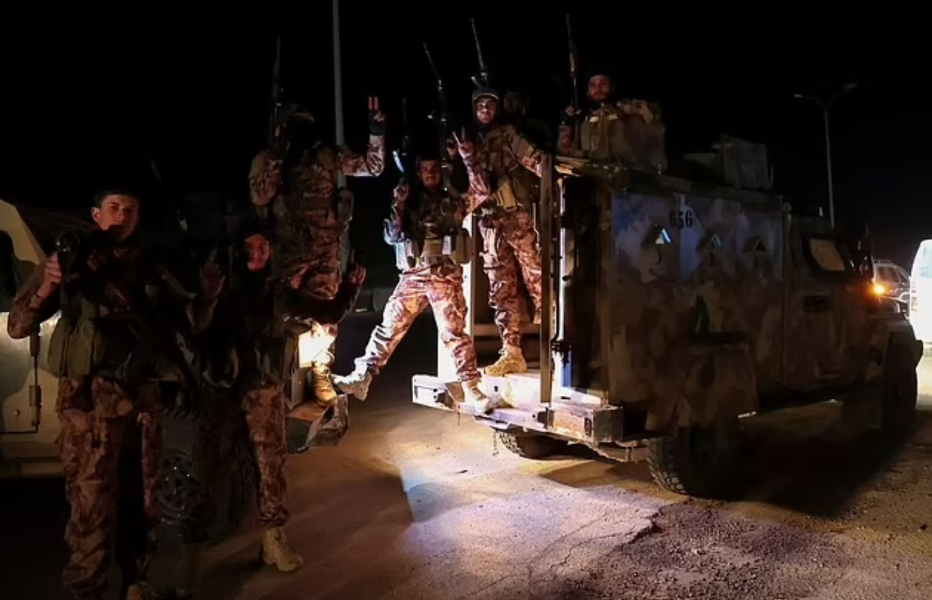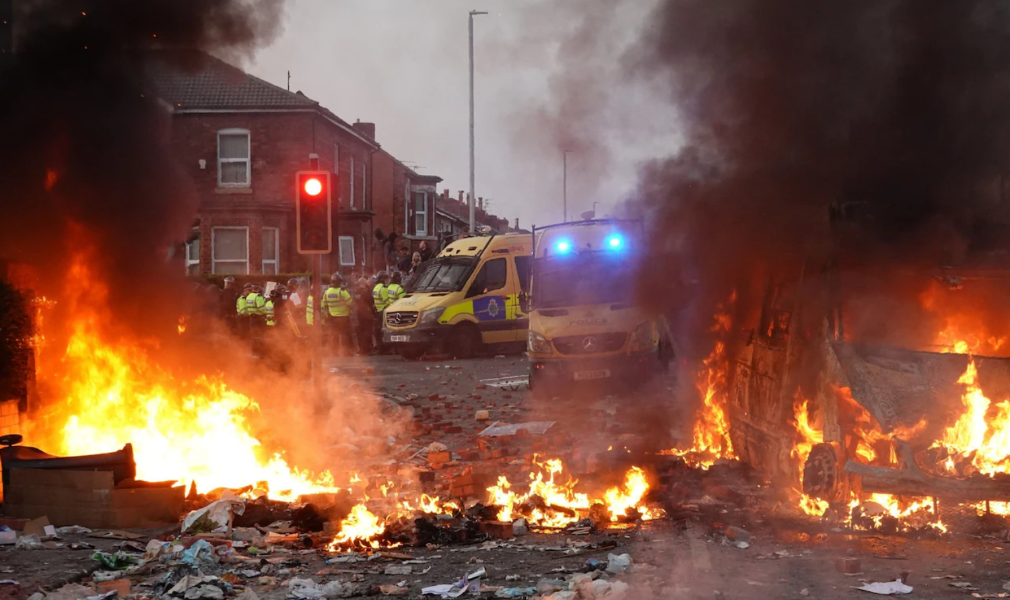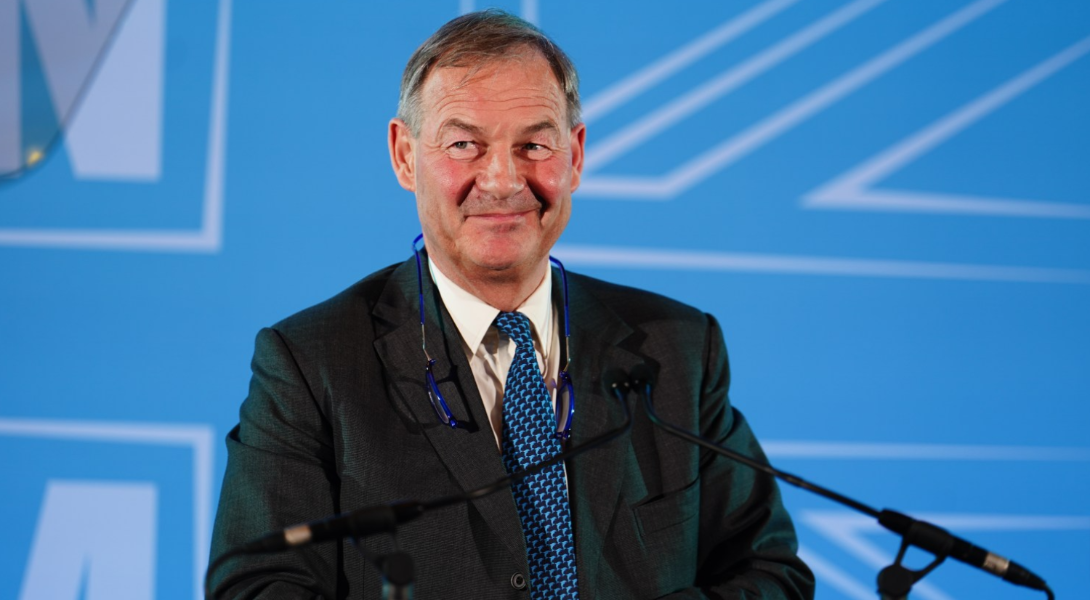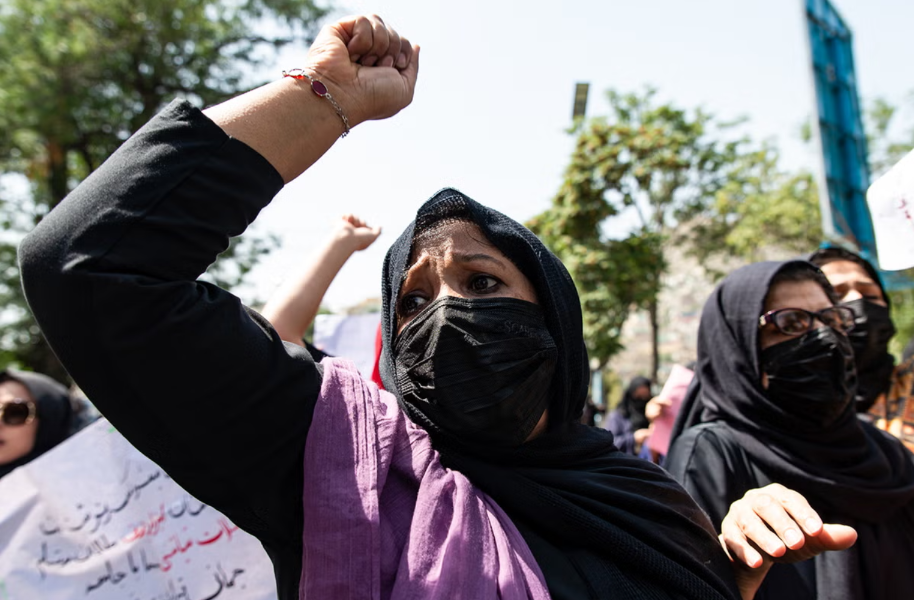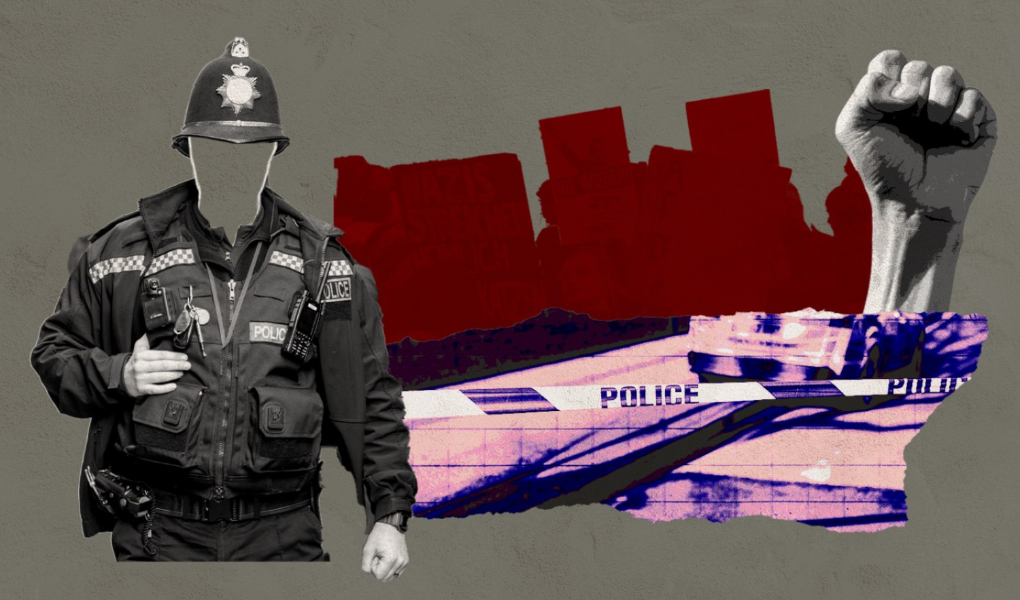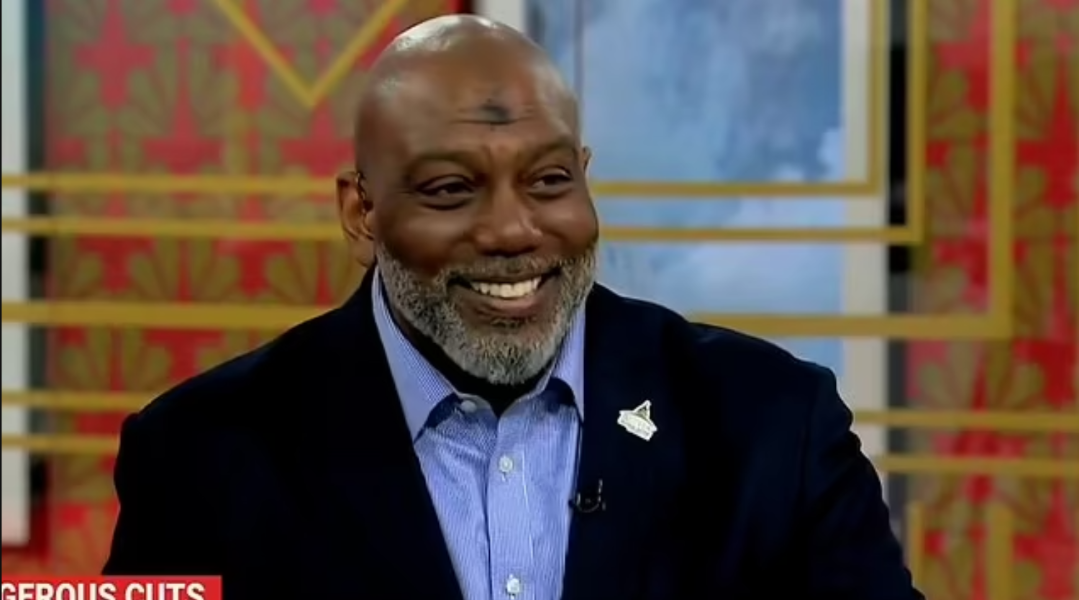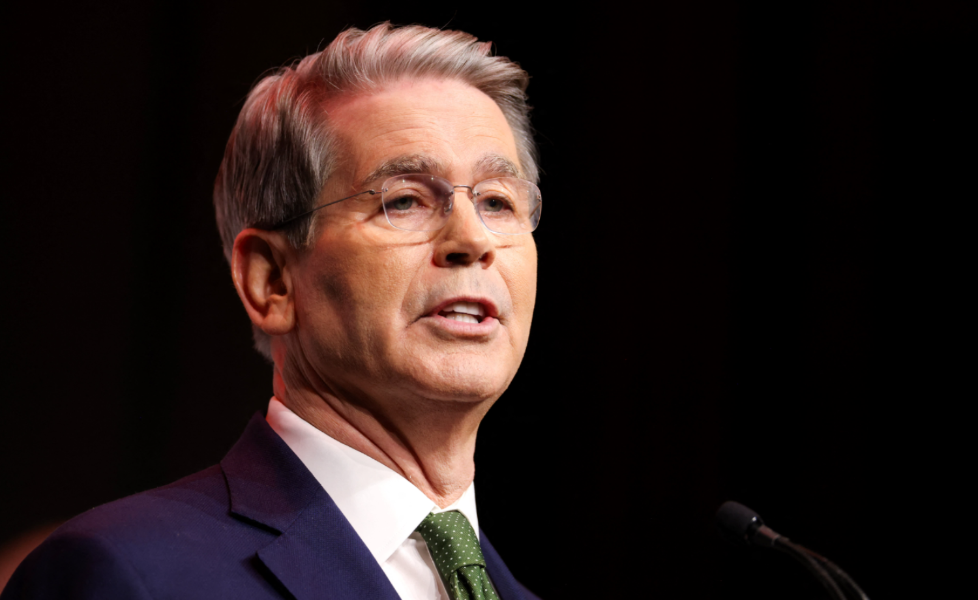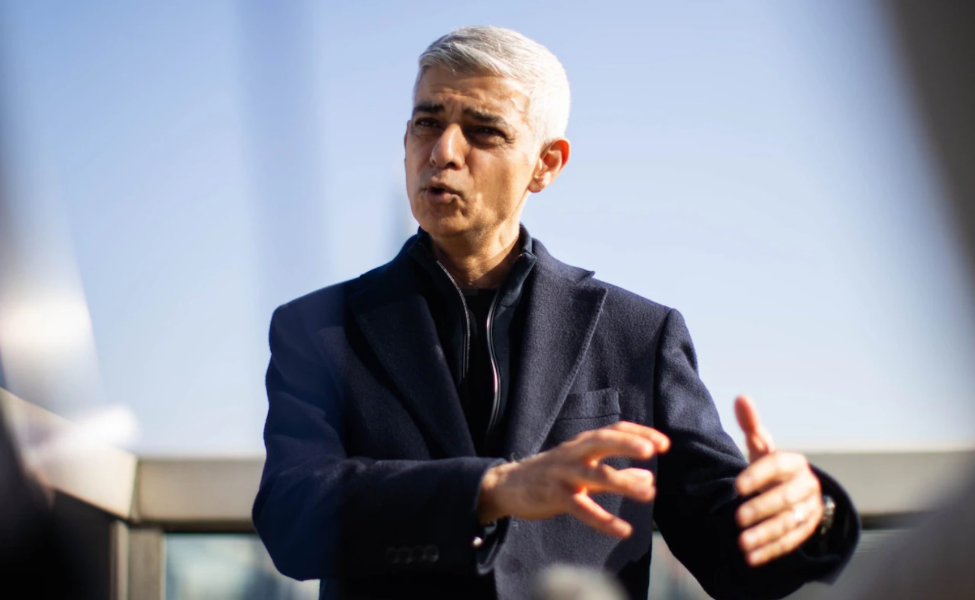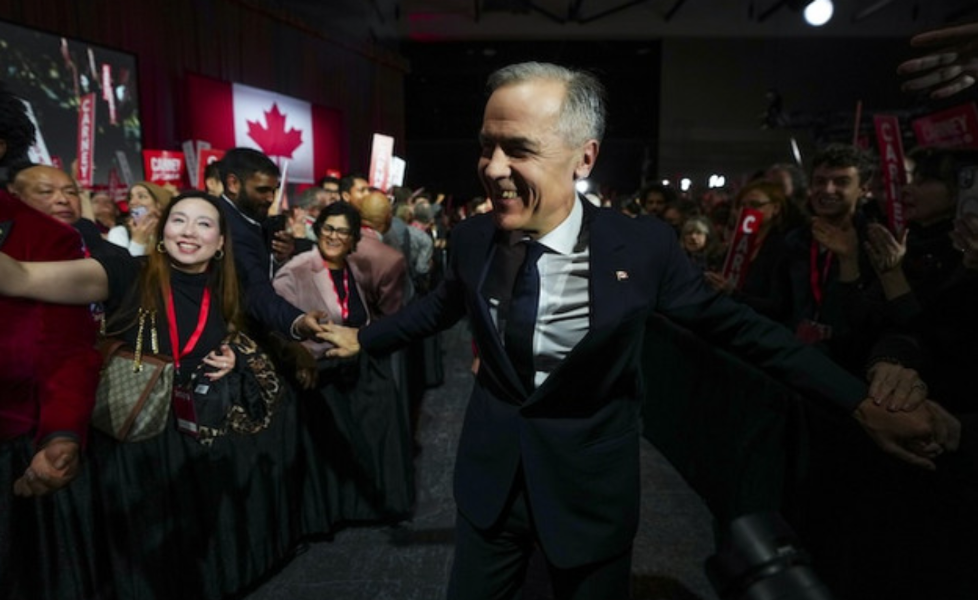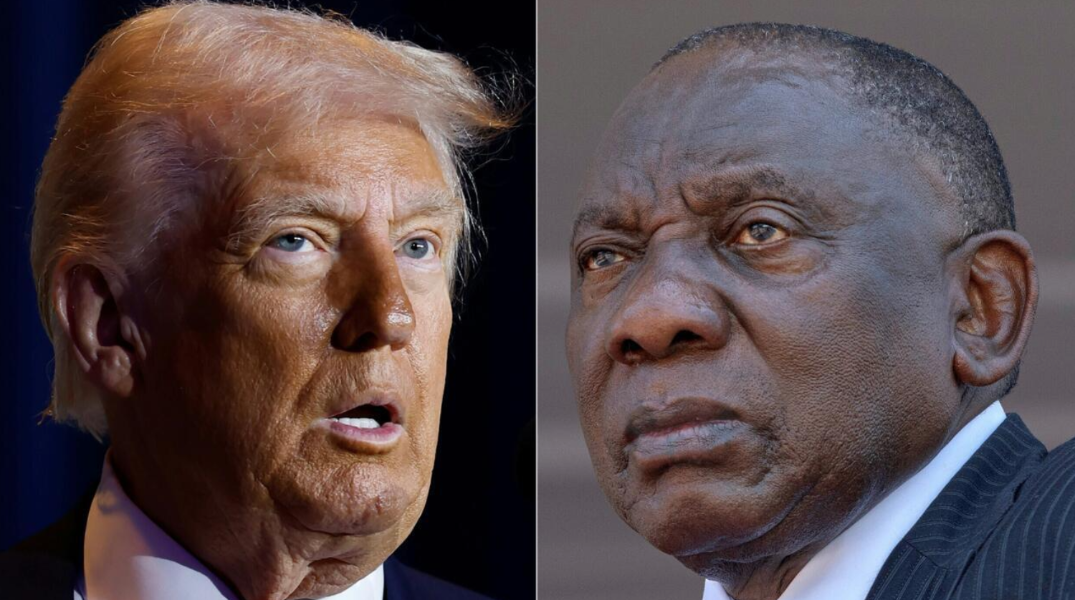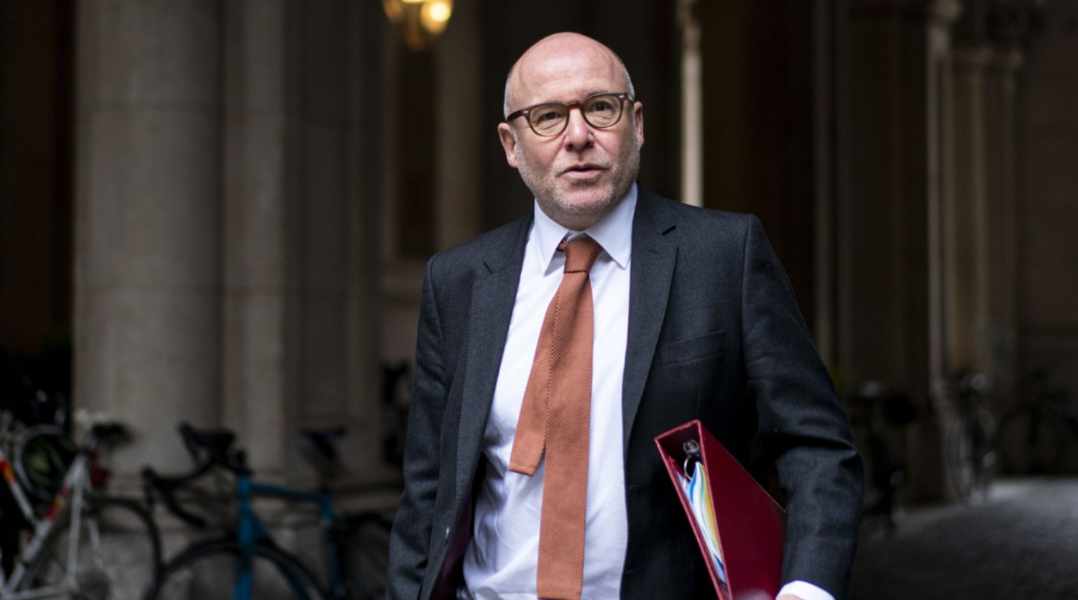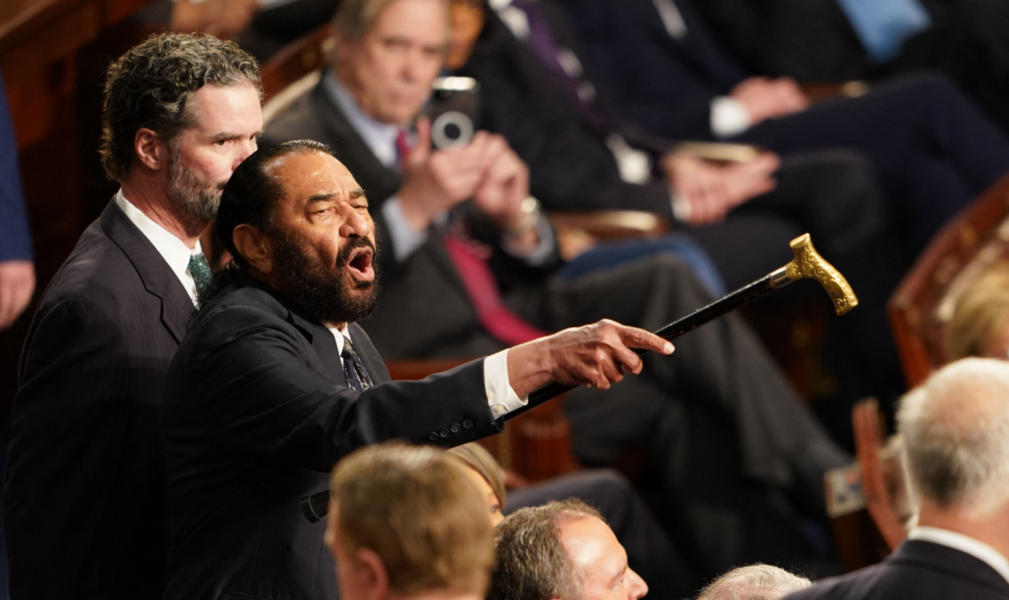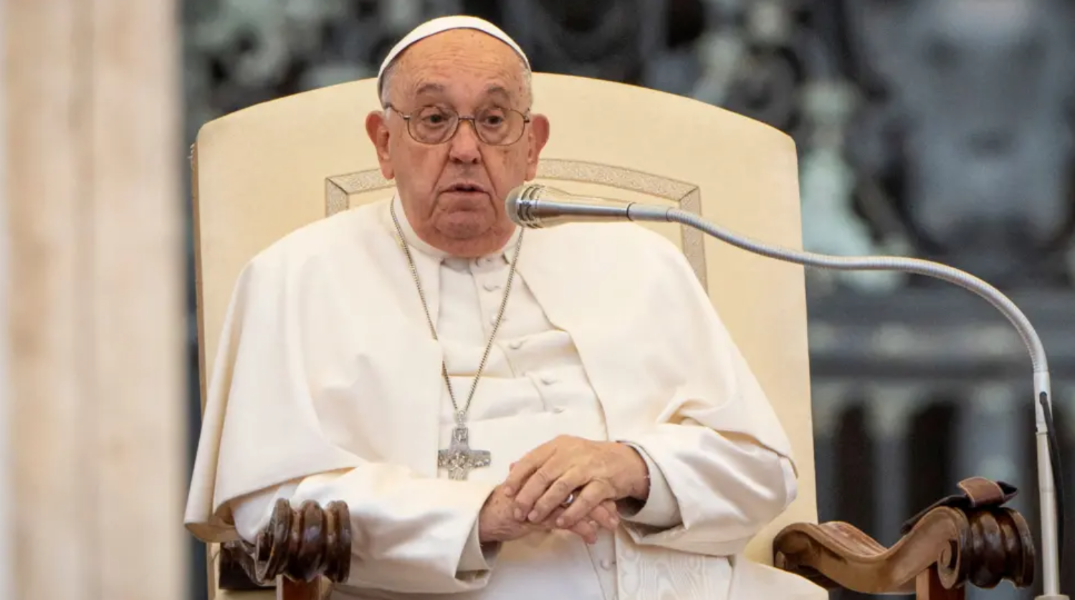-
Posts
10,734 -
Joined
-
Last visited
Content Type
Events
Forums
Downloads
Quizzes
Gallery
Blogs
Everything posted by Social Media
-
Syria has been plunged into some of the most brutal violence in its recent history, with more than 1,000 people killed over the course of just two days. Bloody clashes between the nation’s new rulers and loyalists of ousted President Bashar Assad have led to horrifying massacres, with reports emerging of women being forced to walk naked before being executed. The Britain-based Syrian Observatory for Human Rights reported that among the dead were 745 civilians, many of whom were victims of mass killings. Additionally, 125 government security forces and 148 militants linked to Assad’s regime lost their lives in the fierce fighting. Large areas surrounding the city of Latakia have been left without electricity and drinking water as the conflict continues to rage. Jihadists in Syria are attacking the minority communities of Christians, Druze, and Alawites. The revenge killings were carried out primarily by Sunni Muslim gunmen loyal to the new government, who targeted members of the Alawite minority, a sect that formed the backbone of Assad’s support for decades. The killings represent a severe blow to Hayat Tahrir al-Sham, the faction that led the overthrow of Assad’s government. In Baniyas, one of the worst-hit towns, residents described seeing bodies strewn across the streets, left unburied in homes and on rooftops. A resident recounted how gunmen prevented people from retrieving the bodies of five neighbors who were executed at close range. “They forcibly brought people down to the streets, then they lined them up and started shooting them,” a Baniyas resident told Sky News. “They left nobody. The scene that I saw was pure horror; it’s just indescribable.” Another witness, Ali Sheha, a 57-year-old Baniyas resident, said he fled with his family and neighbors as the violence intensified. He described how at least 20 of his neighbors and colleagues were killed, some in their homes, others in their shops. “These are revenge killings against the Alawites for the crimes committed by Assad’s government,” Sheha said. He also noted that foreign fighters and militants from nearby villages participated in the attacks. As he fled, he saw bodies lying in the streets and gunmen roaming the city, randomly firing at homes and residents. In at least one instance, armed men reportedly demanded to see residents' identification cards to confirm their religion before executing them. The head of the Syrian Observatory for Human Rights, Rami Abdurrahman, confirmed that the revenge killings had largely ceased by early Saturday. “This was one of the biggest massacres during the Syrian conflict,” he stated. While previous estimates placed the death toll at over 200, the numbers have continued to rise, though official figures have not been released. Footage circulating online captures the brutal street battles, with fighters exchanging heavy gunfire. The situation has drawn condemnation from religious leaders, including Syria’s three main Christian churches. In a joint statement, the leaders of the Greek Orthodox, Syriac Orthodox, and Melkite Greek Catholic Churches condemned the violence and the targeting of innocent civilians. “In recent days, Syria has witnessed a dangerous escalation of violence, brutality, and killings, resulting in attacks on innocent civilians, including women and children,” the statement read. The churches called for an end to the massacres, urging national reconciliation and a move toward a society based on equal citizenship and mutual respect. The Observatory reported that 532 Alawite civilians were killed in Syria’s coastal regions and in the Latakia mountains by security forces and allied groups. The killings on the Mediterranean coast, a stronghold of the Alawite minority, have intensified the conflict between the country’s new security forces and Assad loyalists. Although many of Syria’s Christians fled during the civil war that began in 2011, a small Christian community remains in Latakia, one of the areas hit hardest by the violence. “The Christian churches, while strongly condemning any act that threatens civil peace, denounce and condemn the massacres targeting innocent civilians, and call for an immediate end to these horrific acts, which stand in stark opposition to all human and moral values,” the joint statement read. The leaders also called for conditions that would allow for true reconciliation among Syrians, free from vengeance and exclusion. Additionally, Sheikh Hikmat al-Hajri, the spiritual leader of Syria’s Druze minority, has called for an immediate end to the bloodshed. As Syria grapples with yet another wave of horror and destruction, the world watches anxiously, hoping for an end to the seemingly endless cycle of violence. Based on a report by The Daily Mail 2025-03-10
-
Elon Musk’s social media platform, X, formerly known as Twitter, refused to hand over hundreds of user account details to British authorities during and after last summer’s riots. This decision comes as the billionaire has been vocal in criticizing the UK Government for imprisoning individuals over social media posts. According to newly published transparency figures from X, the company rejected more than half of the information requests submitted by UK authorities in the second half of 2024. Out of 806 requests, X provided data in just 379 cases, representing a compliance rate of 47 percent. This rate is significantly lower than the disclosure levels reported by other major technology companies, including Google, Meta, TikTok, and LinkedIn. The requests from UK law enforcement agencies sought access to various types of data, including email addresses, IP addresses, and private messages associated with certain accounts. The period covered by the data coincides with the riots that took place in July and August, which led to dozens of arrests for social media activity. Some individuals faced prison sentences as a result of their online statements. During this time, Musk was outspoken in his criticism of the UK’s response. He compared Britain to the Soviet Union and accused the recently elected Labour Government of suppressing free speech. In January, he went even further, writing, “At this rate, the UK Government will pretty soon be executing people for liking a meme!” Law enforcement agencies regularly request social media companies to provide user data in aid of criminal investigations, often to identify anonymous accounts or determine communication patterns. These requests are assessed by legal teams within the companies, which have the authority to deny them if they are deemed too broad or legally questionable. Some requests, classified as emergencies, are made when authorities perceive an immediate threat. X’s legal policy states that the company “may seek to narrow requests that are overly broad, request additional context if the nature of the investigation is not clear, or push back on the request for other reasons.” The platform saw an increase in the number of government data requests during the second half of 2024, rising to 806 from 635 in the first half of the year. The company’s 47 percent compliance rate with UK authorities is in line with its rate across the European Union but falls far below its disclosure rate in the United States, where it provided information in 78.5 percent of cases. By contrast, other major tech companies were significantly more cooperative with UK law enforcement. In the first half of 2024, Meta, which owns Facebook, Instagram, and WhatsApp, provided data in 84 percent of cases. Google complied with 88 percent of requests, TikTok with 62 percent, and LinkedIn with 61 percent. These statistics do not yet include the second half of 2024, a period that saw widespread riots across the UK following the killing of three girls in Southport by 17-year-old Axel Rudakubana. The violence led to a surge in online communications offenses, with The Telegraph recently revealing that 292 individuals have been charged under the Online Safety Act since October 2023. Among them, 67 people have been convicted. Some of those sentenced for social media posts made during the riots include Lucy Connolly, the wife of a Conservative councillor, who was sentenced to two and a half years in prison for writing on X: “Mass deportation now, set fire to all the f---ing hotels full of the b------s for all I care, while you’re at it take the treacherous government politicians with them.” Another individual, 53-year-old Julie Sweeney, was sentenced to 15 months after advocating for the bombing of a mosque. The latest disclosure figures also emerge as Home Secretary Yvette Cooper faces legal resistance from Apple regarding the government’s push for access to encrypted communications. Apple has launched a legal challenge against a Home Office directive that would require the company to install a backdoor in its iCloud encryption system. Musk has publicly backed Apple’s stance, responding to the news with a simple “good.” Based on a report by The Independent 2025-03-10
-
Reform UK has referred its own MP, Rupert Lowe, to the police over allegations of workplace bullying, targeting female staff, and making threats of physical violence against the party’s chairman. The accusations against the MP for Great Yarmouth, which the party described as a “disturbing pattern of behaviour,” have sparked internal tensions within Nigel Farage’s party. According to a statement released by Reform UK’s chief whip, Lee Anderson, and chairman, Zia Yusuf, the party received two complaints from female employees. "Evidence was provided to us of workplace bullying, the targeting of female staff who raised concerns, and evidence of derogatory and discriminatory remarks made about women, including reference to a perceived disability,” they said. The statement further alleged that Lowe had “on at least two occasions made threats of physical violence against our party chairman.” Anderson and Yusuf confirmed that the matter had been handed over to the police. The accusations against Lowe surfaced after he made critical remarks about Nigel Farage’s leadership, arguing that Reform UK needed a more structured governance. He accused Farage of acting like a “messiah” and warned that he would not remain in the party unless significant changes were made. "We have to change from being a protest party led by the messiah into being a properly structured party with a front bench, which we don’t have. We have to start behaving as if we are leading and not merely protesting," he told *The Daily Mail*. Farage swiftly dismissed Lowe’s claims, stating: “We are not a protest party in any way at all. That is utterly, completely wrong. We are an entirely positive party. Come to any Reform event and the positivity, the energy—perhaps he should come to one or two.” Speaking to *The Sun*, he added, “Reform wouldn’t have won any seats in parliament at all on the 4th of July last year if I wasn’t there.” Lowe strongly denied the allegations, calling them “untrue and false.” In an extensive statement, he said: "Let me be abundantly clear—this investigation is based on zero credible evidence against me, as has been repeatedly stated by the neutral investigator. None has been provided." He further insisted that he had fully cooperated with the investigation, which he described as a “minor staff matter.” According to Lowe, the KC hired by Reform was “dismayed that this statement has been made” and had confirmed that “no evidence against me has been sent to her.” Dismissing the allegations as a deliberate attempt to damage his reputation, Lowe declared: "Allegations of physical threats are outrageous and entirely untrue. I have never made any derogatory comments about women, or those with disabilities. This is a lie. These allegations are not even referring to me. I will be seeking legal advice immediately." Farage doubled down on his position, questioning Lowe’s statements and suggesting they were motivated by political ambition. “Perhaps he wants to be prime minister—most people in politics do … his comments are wrong, we are making gigantic strides,” he said. The controversy has led to criticism from the Conservative Party, which questioned Reform UK’s handling of the situation. A spokesperson for the party said: "If these allegations are true and as serious as they claim, then Reform would remove the whip from Rupert Lowe. If they are not removing the whip, then it can only be seen as a stitch-up to ruin Lowe’s reputation and punish him for criticising their messiah." As the police investigation progresses, the allegations against Lowe are adding to the internal fractures within Reform UK, raising questions about both the party’s leadership and its ability to manage internal disputes. Based on a report by The Times 2025-03-10
-
A devoted father has launched a protest after being forced to withdraw his eight-year-old son from private school due to Labour's introduction of VAT on tuition fees. Matt Harris, 46, a father of three from Sidmouth, Devon, is preparing to take a stand outside the High Court next month, arguing that the new tax policy is unfairly disrupting children's education. His son, Tiger, is among those affected, having to leave behind the friendships and routine he has known for years. "He is being forced to leave the many friendships he has built over the years at his school, his place of familiarity and his routine through no fault of his own," Mr. Harris told MailOnline. The Independent Schools Council (ISC) has mounted a legal challenge against the government's decision to impose VAT on private school fees, arguing that it infringes on human rights and places an undue financial burden on families. The case is set to be heard in April. Mr. Harris, a solicitor’s casework officer, and his wife Nat, have already cut expenses as much as possible, having put their two daughters—18-year-old Isabella and 14-year-old Milly—through independent schools. “There’s nothing left to cut – I drive a 25-year-old Volvo estate and we don’t take long foreign holidays or anything," he explained. He wants people to understand that private education is not just for the ultra-wealthy. "This isn't all about people with millions sending their children to Eton and Harrow," he said. "It’s ordinary people who have made this choice and decided to save on other things which people take for granted." With Milly approaching her GCSEs and receiving a bursary at an all-girls school, withdrawing her now isn’t an option. However, Tiger’s annual fees of £13,000 plus VAT have become unaffordable for the family. Adding to the difficulty is the structure of the state education system. Tiger was an August-born child and had been kept back a year in the private sector, something not typically permitted in state schools. If he transitions now, he would be expected to skip from Year 4 to Year 6. "We don’t think that’s fair on him," Mr. Harris said. The father remains convinced that the ISC will win its case, but he anticipates a prolonged legal battle. "I strongly believe the government will lose this, as it is a breach of the children’s human rights. I think Keir Starmer knows this, but it will be seen by his followers as having immediately fulfilled an election pledge," he said. Mr. Harris also criticized the state school system and suggested that it could learn from the private sector. "The Department for Education should learn from the private sector where teachers are in it to teach and not just for the pension," he said. He also highlighted the ways private schools could support the state sector, such as taking in children with special educational needs at cost or helping disadvantaged students turn their academic prospects around. Parents of independent school pupils, he argued, are already contributing heavily to education funding. "We pay our income tax, which includes a provision for education, even though we're not using it. Then we pay for school fees, and now we're being asked to pay VAT on top of that—it’s just not fair," he said. To fight back, Mr. Harris has planned a protest outside the High Court for the duration of the three-day hearing. He has also launched a GoFundMe campaign to raise £10,000 to help cover expenses for those traveling to London to join the protest. "We’re not expecting to hit the £10k, but we want to fund banners and help pay for transport and lodgings for anyone who can come along and support us. I expect it's going to be a long road," he said. Meanwhile, concerns are growing about the strain the VAT policy will place on the state education system. A recent study found that state schools across 27 local authorities in England are already oversubscribed in some year groups, particularly Years 7 and 8. Councils in areas such as Bristol, Hull, Coventry, Rutland, and South Gloucestershire reportedly have no available places in certain age groups. The government estimates that approximately 37,000 fewer pupils will attend private schools due to the tax changes, many of whom will transition to the already stretched state sector. While there are over half a million spare places in primary and secondary schools nationwide, some councils have little to no capacity in specific year groups. The VAT exemption on private school fees, which had been in place for decades, was officially lifted at the beginning of this year, causing tuition costs to rise by 20%. For families like the Harrises, the impact has been immediate and deeply personal. As Mr. Harris prepares to take his protest to London, he remains determined to challenge what he sees as an unjust policy that disrupts children’s education and forces families into difficult choices. Based on a report by The Daily Mail 2025-03-10 Related Topics: Private Schools Struggle as Labour’s VAT Policy Triggers Closures Looming Crisis: Private Schools Face Closures Amid VAT Hike Top Oxfordshire Prep School to Close Amid Controversial VAT Policy on Private Education England’s Special Educational Needs Crisis: A System in Desperate Need of Reform Legal Challenge Against Private School VAT Policy Deems It Discriminatory
-
The United Nations' special rapporteur for Afghanistan, Richard Bennett, has urged the UK to extend greater support to Afghan refugees fleeing the Taliban’s oppressive rule. Bennett emphasized that these individuals are not seeking a better life out of choice but are escaping severe persecution, making them clear examples of true refugees. “Afghans are not coming to the UK because the streets are paved with gold,” Bennett told *The Independent*. “They are coming because they are persecuted, and life is very hard for them. Nobody wants to be a refugee.” His appeal comes nearly four years after the Taliban regained control of Kabul following the withdrawal of Western forces in 2021. Since then, the regime has imposed strict restrictions on women, effectively erasing them from many aspects of public life. Despite the UK’s commitment to accepting 20,000 Afghan refugees over five years, by December 2024, more than 34,940 had arrived, with nearly 26,000 provided accommodation. However, many continue to suffer from the trauma of displacement, often separated from their families. Bennett, who was barred by the Taliban from entering Afghanistan last year, stressed that there is no need for exhaustive individual screenings of those fleeing the country, as the persecution is widespread. “The situation is so repressive that it meets the definition of persecution for every class of that gender,” he explained. Urging compassion, he referenced his own country's values, stating, “I come from New Zealand, and we had a prime minister who asked people to be kind. So that’s what I would do too – to be kind to Afghan refugees, please.” At the recent Herat Security Dialogue in Spain, Bennett described the conditions faced by Afghan women and girls under Taliban rule as “hell.” His latest report underscored the Taliban’s unwillingness to fulfill international obligations, highlighting their failure to gain formal recognition from any nation nearly four years after seizing power. The militant group’s refusal to allow him access to Afghanistan, he noted, further signals their disregard for global accountability. Many countries have made it clear that the Taliban’s position on women’s rights remains a major obstacle to diplomatic recognition. Afghan women have been barred from secondary education, forbidden from visiting parks, and restricted from traveling without a male guardian. Bennett also raised concerns over the plight of Afghanistan’s LGBTI+ community. Reports have surfaced alleging that the Taliban sentenced a man in a same-sex relationship to death by burying him under a wall. “We have been looking into it. It was a couple of years ago, but we have not verified it yet,” he said, confirming ongoing investigations into abuses faced by LGBTI+ individuals. He recalled video calls from members of the community hiding in safe houses, showing injuries from beatings inflicted by police. Even before the Taliban’s return, he noted, Afghanistan remained an unsafe place for individuals who did not conform to rigid gender norms. “They are expected to meet gender norms and can be targeted for how they dress,” he explained. “If you are a man, [you’re expected to] have a beard – which may not be what they want to do – and dress in a certain way or walk in a certain way, and they’ll draw attention to themselves by being themselves.” One transgender woman recounted to him how her family was detained and beaten by Taliban affiliates after she fled the country. “They do not see us as human,” she told him. Bennett warned against normalizing diplomatic relations with the Taliban without “significant, verified, and measurable improvements” in Afghanistan’s human rights situation. He urged nations like the US and the UK to hold the regime accountable and to ensure that engagement does not come at the cost of Afghan lives and freedoms. Based on a report by The Independent 2025-03-10
-
Elon Musk found himself at the center of a heated confrontation with members of Donald Trump’s cabinet during a high-stakes White House meeting, where he was directly accused of dishonesty. The dispute, which unfolded in the presence of the president, centered around layoffs at Doge, particularly cuts affecting air traffic controllers and Veterans Affairs hospitals. Sean Duffy, the secretary of the Department of Transport, led the charge against Musk, expressing outrage over the dismissal of air traffic controllers despite an ongoing national shortage. When Musk denied the allegations, Duffy presented a spreadsheet as evidence, sliding it across the desk in front of the president to contradict Musk’s claims. Reports suggest the transport secretary accused Musk of firing personnel who should have remained, which Musk rejected outright. The confrontation escalated further when Doug Collins, the secretary of Veterans Affairs, criticized Musk for disrupting operations at VA hospitals due to Doge’s cost-cutting measures. When Musk insisted that such disruptions were not a direct result of his company’s actions, Collins urged him to take a more strategic approach to reductions instead of making indiscriminate cuts. Trump reportedly sided with his cabinet members, allowing them to manage staffing decisions within their respective departments rather than relying on Musk’s direction. “Trump called the meeting and then he backed his cabinet guys. Collins and Duffy called him (Musk) a liar to his face, in front of the president,” a source revealed. Adding to the tension, Secretary of State Marco Rubio, who had been privately frustrated with Musk for weeks, also weighed in. Musk, seated diagonally from Rubio, accused him of failing to implement staff reductions, sarcastically claiming, “You have fired nobody.” He then insinuated that the only termination Rubio had overseen was a single Doge employee. In response, Rubio highlighted the more than 1,500 State Department officials who had taken early retirement buyouts. Despite the heated exchange, Musk attempted to defuse the situation with an offhand remark, telling Rubio he was “good on TV.” As tempers flared, Trump eventually stepped in, defending Rubio’s performance as secretary of state and praising his efforts. He later took to social media to reflect on the meeting, framing it as constructive despite the confrontations. “We just had a meeting with most of the secretaries, Elon, and others, and it was a very positive one. It’s very important that we cut levels down to where they should be, but it’s also important to keep the best and most productive people,” Trump wrote. He emphasized the importance of precision in staffing decisions, stating, “We say the ‘scalpel’ rather than the ‘hatchet.’” Tammy Bruce, a State Department spokesperson, echoed this sentiment, describing the meeting as an “open and productive discussion” focused on achieving the shared goal of making America great again. A Veterans Affairs spokesperson reaffirmed the administration’s commitment to increasing efficiency while ensuring that key personnel remain in place. Following the meeting, Duffy took to X to defend Doge’s role in helping agencies identify inefficiencies and modernize systems. “Doge is doing incredible work helping agencies identify inefficiencies as well as advising us as we work on the critical upgrades to our air traffic control system. The president’s approach of a scalpel versus a hatchet and better coordination between secretaries and Doge is the right approach to revolutionizing the way our government is run,” he wrote. The Department of Transport and Elon Musk have yet to comment publicly on the confrontation, but the meeting highlighted growing tensions between Musk and key members of Trump’s administration over the future of government efficiency and workforce reductions. Based on a report by The Telegraph 2025-03-10
-
Two of the UK’s biggest police forces, the Metropolitan Police and Greater Manchester Police, have admitted they lack the ability to track crimes linked to extremism, leaving them vulnerable to potential terrorist threats. Through Freedom of Information (FOI) requests, it was revealed that neither force has a system in place to log whether crimes are motivated by Islamist extremism, far-right or far-left ideologies, incel-related violence, or environmental extremism. Critics argue this failure prevents authorities from recognizing patterns that could expose terrorist intent or lead to attacks. The Metropolitan Police, when asked for data on extremist-related crimes from 2020 to the most recent date available, responded that such information “does not hold centrally in a format that can be extracted.” The force further explained, “There is no flag, no code, or other mechanism that would highlight Islamic extremism, right-wing, incel, environmental, or far-left extremism.” Greater Manchester Police echoed this, stating they “do not have any flags or searchable fields” to identify extremist crimes in their records. Shadow Justice Secretary Robert Jenrick has called for all police forces to be required to track and publish data on extremist crimes to better address terrorism threats. “These forces should be mandated to record and publish the data. This is yet another example of the authorities failing to break down crime statistics, and it only breeds distrust and suspicion among the public,” Jenrick stated. He also pointed to existing statistics, highlighting that Islamists account for 80% of referrals to Prevent, the government’s counterterrorism program. “What is the proportion of offences logged by the police? Policymakers and the public need to know,” he added. The Met clarified that while extremist offences falling under hate crimes or terrorism are recorded, there is no specific criminal offence for extremism itself. This revelation comes two years after Sir William Shawcross’s review of Prevent, which found that the program had not adequately focused on the scale of the Islamist threat. Shawcross’s report indicated that 75% of MI5’s counterterrorism caseload, 68% of terrorist attacks since 2018, and 60% of imprisoned terrorists were linked to Islamic extremism. Shawcross also warned that a reluctance to refer Islamic extremists to Prevent, due to fears of accusations of racism, had distorted the program’s effectiveness. Concerns over Prevent resurfaced last month after it was revealed that counterterrorism police repeatedly missed opportunities to stop Axel Rudakubana, the Southport attacker. Despite being flagged three times between 2019 and 2021 for carrying a knife and researching terrorist incidents such as the 2005 London bombings and the Manchester Arena attack, authorities dismissed the threat he posed. Further failures occurred due to his name being misspelled by Prevent officials. A spokesperson for the Met stated, “The Met records all hate crimes and terrorism-related crimes in accordance with Home Office counting rules, but given there is no criminal offence of ‘extremism,’ we therefore do not record offences under this category. However, there are robust mechanisms in place to ensure that officers can flag any crimes or individuals where there are concerns over extremism or radicalisation into the counterterrorism command.” The spokesperson added that when such concerns arise, specialist officers assess the situation and take further action, often leading to referrals to Prevent, which aims to steer individuals away from radicalisation. However, critics argue that without a proper tracking system in place, the authorities may remain blind to key warning signs, increasing the risk of future attacks. Based on a report by The Times 2025-03-10
-
A Columbia University professor has stirred controversy by claiming that the Department of Government Efficiency (DOGE) is racist because it is making budget cuts to a government that was once led by Barack Obama. Basil Smikle, a lecturer at the Ivy League institution and a Democratic strategist, made the statement during an appearance on MSNBC, where he criticized DOGE’s cost-cutting measures. "There are people who are charged with trying to find savings," Smikle said. "So yes, it’s an attack on government, but it’s also an attack on this government. What I mean by that is it’s an attack on this government that used to be headed by a black man. It’s an attack on this government that almost elected a black woman to the highest office in the land." His remarks raised eyebrows, particularly given that three different administrations have come and gone since Obama left office. DailyMail.com has reached out to Smikle for clarification on his comments. Smikle, who previously served as Executive Director of the New York State Democratic Party under former Governor Andrew Cuomo and as a senior aide to Hillary Clinton during her tenure in the Senate, is no stranger to political discourse. However, his assertion about DOGE was met with widespread skepticism and ridicule, particularly among conservative commentators and Trump supporters. Social media users wasted no time in mocking the professor’s logic. "That is the worst logic I have ever heard. Zero foundation. How is this man a professor of anything?" one user on X remarked. Another commented, "That’s quite the circular logic." As debate over government spending continues, Smikle’s comments have only added fuel to the partisan fire, raising questions about how racial politics intersect with fiscal policy decisions. Based on a report by The Daily Mail 2025-03-10
-
The Trump administration is intensifying its economic pressure on Iran, aiming to shut down the country’s oil industry and cause a complete economic collapse, Treasury Secretary Scott Bessent said on Thursday. Speaking at the Economic Club of New York, Bessent outlined the administration’s aggressive strategy to reduce Iran’s oil exports, which currently stand at 1.5 million barrels per day, to nearly nothing. “We are going to shut down Iran’s oil sector and drone manufacturing capabilities,” Bessent stated, emphasizing that the U.S. intends to isolate Tehran from the international financial system as part of its broader sanctions campaign. He warned that the economic consequences for Iran would be severe. “If I were an Iranian, I would get all my money out of the rial now,” he added, referring to Iran’s struggling currency. Bessent’s comments had an immediate impact on the global oil market. Following his speech, prices for U.S. crude oil and the global benchmark Brent crude turned positive. West Texas Intermediate rose 5 cents, closing at $66.37 per barrel, while Brent increased by 16 cents to settle at $69.46. The administration’s approach is part of President Donald Trump’s “maximum pressure” campaign, which aims to cripple Iran’s economy through sanctions. “Making Iran broke again will mark the beginning of our updated sanctions policy,” Bessent stated. The latest round of sanctions followed a presidential memorandum signed by Trump on February 4, reimposing economic pressure on Iran. Two days later, the U.S. Treasury Department targeted an international network that was facilitating Iranian oil shipments to China, further tightening the financial squeeze on Tehran. Meanwhile, the global oil market has been experiencing volatility. On Wednesday, crude oil prices dropped to multi-year lows as investors reacted to Trump’s tariffs on Canada, Mexico, and China, which raised concerns about slower economic growth and weakened oil demand. Additionally, OPEC+ confirmed that it would gradually reintroduce 2.2 million barrels per day to the market starting in April. Analysts from JPMorgan, led by Natasha Kaneva, noted in a report to clients that the potential decline in Iranian oil supply remains the most significant bullish factor for global oil prices. Despite the harsh sanctions, Trump has expressed his willingness to negotiate a new nuclear deal with Iran. “I would much prefer a Verified Nuclear Peace Agreement, which will let Iran peacefully grow and prosper,” he stated in a social media post on February 5. However, in 2018, he withdrew the U.S. from the Joint Comprehensive Plan of Action (JCPOA), the nuclear deal brokered under former President Barack Obama, leading to the current standoff between Washington and Tehran. CNBC has reached out to Iran’s UN Mission for a response to Bessent’s remarks, but no comment has been provided yet. As tensions continue to rise, the impact of U.S. sanctions on Iran’s economy and global oil markets will remain a critical issue in the months ahead. Based on a report by CNBC 2025-03-10
-
The Kremlin has sharply criticized French President Emmanuel Macron following his suggestion that France may extend its nuclear deterrent to protect European allies. Russian officials accused Macron of making direct threats against Russia, with Foreign Minister Sergey Lavrov even drawing comparisons between Macron and Adolf Hitler. Kremlin spokesperson Dmitry Peskov also condemned the French leader’s remarks as “extremely confrontational,” while senior Russian senator Konstantin Kosachev described Macron as a “maniac” pushing the world toward catastrophe. The strong reactions came after Macron announced in a televised address that he would open discussions on potentially extending France’s nuclear protection to other European nations. This proposal followed calls from Friedrich Merz, Germany’s chancellor-in-waiting, for France and the UK to enhance their nuclear deterrent to counter rising threats. Lavrov responded with alarm, stating, “If he sees us as a threat... and says that it is necessary to use a nuclear weapon, is preparing to use a nuclear weapon against Russia, of course it is a threat.” Macron, however, justified his stance by pointing to a rapidly rearming Russia, calling it a danger to both France and Europe. He also noted that the war in Ukraine had already become a “global conflict” and suggested that Europe could no longer depend on the United States for unwavering support. Macron’s rhetoric drew further condemnation from Peskov, who claimed, “France wants the war to continue,” while members of the Russian parliament expressed outrage. Kosachev accused Macron of misleading the world with a false narrative that Russia was preparing for aggression, adding, “Such false conclusions and false suggestions lead to the abyss.” Currently, Russia and the United States control around 88 percent of the world’s nuclear stockpile, with approximately 5,000 warheads each. France possesses an estimated 290 nuclear warheads, while the UK holds 225, according to data from the Federation of American Scientists. Macron, addressing growing concerns among European nations, reassured citizens by stating, “You are, I know, legitimately worried about the current events, which are disrupting the world order. To watch and do nothing would be madness.” His proposal found support from Lithuanian President Gitanas Nausėda, who called the idea “very interesting” and added, “A nuclear umbrella would serve as a really very serious deterrence toward Russia.” As tensions escalate, Macron is set to host European military leaders in Paris next week to discuss the possibility of deploying troops to Ukraine after a ceasefire is reached with Russia. Moscow has firmly opposed any such peacekeeping forces in Ukraine, with Lavrov making clear that Russia sees no room for negotiation on the matter. “This discussion is being held with an overtly hostile aim,” he declared, warning that any European troops sent to Ukraine would be treated as NATO forces. Lavrov also invoked historical comparisons, saying, “Unlike their predecessors, who also wanted to fight against Russia—Napoleon, Hitler—Mr Macron does not act very gracefully, because at least they said it bluntly: ‘We must conquer Russia, we must defeat Russia.’” Meanwhile, Macron expressed concern over shifting US foreign policy, particularly in light of Donald Trump’s stance on European security. “I want to believe that the United States will stand by us. But we need to be ready if that is not the case,” he said. The situation comes amid frantic diplomatic efforts to bolster support for Ukraine. With Washington’s commitment wavering, Britain and France have sought to act as intermediaries between the US and Kyiv. In the past two days, the US has halted military aid to Ukraine and cut off intelligence-sharing, both critical for Ukraine’s defense and strategic operations. Ukrainian President Volodymyr Zelensky has responded by signaling his willingness to engage in peace talks, stating that he is prepared to negotiate “as soon as possible” in a bid to mend relations with the Trump administration. On Thursday, European Union leaders held emergency talks on Ukraine and the potential for a peace agreement, following a high-level summit hosted in London by UK Prime Minister Sir Keir Starmer. Based on a report by The Telegraph 2025-03-10
-
Sir Sadiq Khan has suggested that he may use taxpayer funds to challenge Chancellor Rachel Reeves’ plans for a third runway at Heathrow Airport, citing environmental concerns. The Mayor of London, a long-time opponent of the expansion, has warned that if Heathrow’s plans fail to address his concerns, he is prepared to take legal action. Speaking on BBC Radio 4’s *Today* programme, Sir Sadiq was asked whether he would use public money to launch a legal challenge. He responded, “Look, I’m a pro-business, pro-growth mayor. We recently announced a London Growth Plan because I really believe in the importance of growing the economy.” When pressed further, he added, “I agree with nearly all of Rachel’s policies relating to growth. But let’s wait and see what plans Heathrow publish. Look, if Heathrow don’t address the concerns I’ve highlighted, then, of course, my job is to stand for London.” When asked directly if he would allocate funds from his mayoral budget to oppose the expansion, he reiterated, “Let’s wait and see what plans Heathrow publish. But I will use all the tools in my tool kit if I think it’s wrong in terms of Londoners’ interest, and indeed the national interest.” Rachel Reeves has backed the expansion, describing the third runway as “badly needed” and arguing that it could create 100,000 jobs and be completed within a decade. However, Sir Sadiq has remained firm in his opposition, stating in January, “I remain opposed to a new runway at Heathrow because of the severe impact it will have on noise, air pollution and meeting our climate change targets. I will scrutinise carefully any new proposals that now come forward from Heathrow, including the impact it will have on people living in the area and the huge knock-on effects for our transport infrastructure.” While acknowledging that the aviation sector has made “huge progress” in sustainability, he added, “I’m simply not convinced that you can have hundreds of thousands of additional flights at Heathrow every year without a hugely damaging impact on our environment.” Reeves has also supported plans to expand capacity at Gatwick and other London airports, arguing that such projects are crucial for economic growth. However, opposition to Heathrow expansion is not new within the Labour Party. In 2018, six current Cabinet members, including Prime Minister Sir Keir Starmer, voted against the third runway. Other key figures, such as Energy Secretary Ed Miliband and Environment Secretary Steve Reed, also opposed the expansion at the time. Despite this, some former critics have shifted their stance. In January, Steve Reed stated he would now support the runway “in line with the Government’s climate and environmental commitments.” Ed Miliband reportedly argued against the expansion in a recent Cabinet meeting but later confirmed he would not resign over Reeves’ decision to back it. Sir Sadiq’s opposition to Heathrow expansion is just the latest in a series of policy disagreements with the Labour leadership. Last summer, he hinted at a Brexit divide, suggesting that the UK could rejoin the EU “in the medium to long term,” despite the party ruling out such a move. In 2023, he also opposed Sir Keir’s proposal to allow housing development on green belt land, insisting that even “derelict and unsightly” parts should be protected from construction. His latest remarks suggest that tensions within the party remain over key policy decisions, with the Heathrow expansion set to be a major point of contention in the coming months. Based on a report by The Telegraph 2025-03-10
-
Former UK and Canada central bank chief Mark Carney wins the Liberal leadership race. He will succeed Justin Trudeau as Canada’s prime minister and Liberal Party leader. Mark Carney, a political rookie but experienced banker with a history of helming state financial institutions during crises, won the race to replace Justin Trudeau on Sunday. The new Liberal Party leader arrives with a colossal task at the top of his to-do list: defend Canada from Donald Trump. The political landscape in Canada has been upended by the return of Trump, and for the first time in years, the governing Liberals are ascendant. Carney will take over as prime minister in the days ahead after being sworn in by Canada’s governor general. More from BBC
-
The Biden administration’s foreign aid policies have been dramatically reversed under President Donald Trump, with a new executive order leading to an immediate suspension of most US assistance to South Africa. A state department cable, obtained by the *Guardian*, confirms that aid disbursements have been paused in response to Executive Order 14204, which claims white South Africans face “unjust racial discrimination.” The order directs all state department offices, bureaus, and missions to halt funding, with very few exceptions. The cable, signed by Secretary of State Marco Rubio, states, “To effectively implement EO 14204, all bureaus, offices, and missions shall pause all obligations and/or dispersion of aid or assistance to South Africa.” The directive follows Trump’s broader reassessment of US foreign aid, which had already placed certain funding streams under review. The order cites concerns about policies affecting the Afrikaner community—descendants of Dutch settlers who historically controlled South Africa’s apartheid regime, which denied fundamental rights to the Black majority until the country’s democratic transition in 1994. South African-born billionaire Elon Musk, now a close Trump ally and head of the administration’s government efficiency team, has been vocal about what he calls South Africa’s “openly racist policies” and is widely seen as influencing the decision. White South Africans make up just 7% of the country’s population but still hold a disproportionate share of land and wealth. According to the cable, Rubio has delegated authority over aid exceptions to Pete Marocco, a longtime Trump loyalist who previously oversaw sweeping cuts to foreign aid programs at the State Department and USAID. The guidance notes that there is “a very high bar for such requests,” making it clear that most assistance will remain frozen. The only exception is Pepfar, the US global HIV/AIDS program that provides life-saving treatment to millions in South Africa. While Pepfar will continue without interruption, all other aid programs—including those that had previously been granted exceptions—must now receive special approval before proceeding. The executive order comes amid heightened tensions between Washington and Pretoria. The South African government has drawn Trump’s ire both for its legal challenge against Israel at the International Court of Justice and for legislation that allows for the expropriation of private land without compensation in limited cases. While the South African government insists that such land seizures would be rare and subject to judicial review, Trump has framed the policy as an attack on the country’s white minority. Adding to the diplomatic strain, Trump has offered refugee status to wealthy white Afrikaners seeking to relocate to the United States, further inflaming relations with South Africa. The decision to cut aid is expected to deepen the divide between the two nations as Pretoria responds to what it sees as a politically motivated intervention in its domestic affairs. Based on a report by The Guardian 2025-03-08
-
Donald Trump’s recent claim that the U.S. government spent $8 million on making mice transgender was initially dismissed by CNN as false, only for the network to later correct its fact-check. The former president made the assertion during his speech to Congress, where he listed what he described as examples of government waste, including $45 million spent on diversity, equity, and inclusion scholarships in Burma, $20 million on an Arabic version of Sesame Street, and “$8 million for making mice transgender.” Trump added, “This is real.” Left-leaning media outlets quickly labeled the statement as misinformation. CNN journalist Deirde McPhillips originally wrote that Trump “falsely claimed” that federal funds were used for transgender experiments on mice. However, after the White House issued a statement calling CNN “fake news losers,” the network retracted its initial claim and revised its fact-check, acknowledging that Trump’s statement was, in fact, accurate. Trump was referring to research uncovered by the White Coat Waste Project, a non-profit dedicated to exposing taxpayer-funded animal testing. According to Justin Goodman, senior vice president of the group, “over $250 million has been spent on transgender animal experiments over the last couple of decades.” He also noted that “there are over two dozen active federal grants funding transgender animal experiments, worth a total of $64 million.” One such study, funded by the National Institutes of Health (NIH) at Duke University, allegedly received $455,000 to examine how HIV vaccines function in male mice exposed to female hormones in an effort to mimic human gender transitions. At the University of Michigan, an NIH grant of $2,588,000 was reportedly used to study the effects of hormone treatment in mice to replicate gender transition. Meanwhile, at Beth Israel Deaconess Medical Center, $300,000 was allegedly spent investigating breast cancer risk for transgender individuals by examining tumors in mice. Emory University also received NIH funding, with $735,000 reportedly allocated to evaluating how the gut microbiome interacts with gender-affirming hormone therapy in mice. A researcher from Emory explained, “We study the effects of the hormone treatment used by transgender people on skeletal development. We want to know if these hormones impair skeletal growth and increase the probability of osteoporosis later in life.” She emphasized that the experiments are conducted in “normal mice,” arguing that funding was also directed at studying the effects of hormone therapy in monkeys concerning HIV treatment. At the University of California, scientists were allegedly awarded $1,229,000 in NIH funding to examine the effects of male sex hormone treatment on female mice. Additionally, a study at Indiana University, backed by $3,100,000 in NIH grants, investigated the impact of feminizing hormone therapy on the lungs of rodents. While critics initially dismissed Trump’s remarks as exaggerated, the revelation of extensive taxpayer-funded research into the effects of gender-affirming treatments on animals has fueled debate over government spending and scientific ethics. The WhiteHouse issued a seperate statement: Yes, Biden Spent Millions on Transgender Animal Experiments Based on a report by The Telegraph 2025-03-08
-
The idea of conducting a clinical trial on puberty blockers for children, despite the findings of the Cass Review, is beyond belief. The UK government, having already banned these drugs in response to the review, has now announced an £11 million trial to study their effects. But the question remains: can such a trial be ethical? The answer is an unequivocal no. Having worked as a psychiatrist at the Tavistock and Portman NHS Trust, I have seen firsthand the dangers of rushing to medicalize childhood gender distress. As one of the whistleblowers who exposed concerning practices at the now-closed Gender Identity Development Service (GIDS), I witnessed how ideology overtook clinical judgment. Many children—often same-sex attracted or autistic—were fast-tracked onto a medical transition pathway by clinicians who had abandoned sound clinical reasoning in favor of political activism. A clinical trial of puberty blockers risks repeating these mistakes. Clinical trials are governed by strict ethical and legal frameworks, including the Declaration of Helsinki and the UK’s Medicines for Human Use Regulations. These safeguards exist to ensure that new medical interventions do more good than harm. However, the Cass Review has already made it clear that the evidence for the safety and effectiveness of puberty blockers is exceptionally weak, while the risks are significant. Studies suggest they may have serious negative effects on bone density, cognitive development, and future sexual function. Additionally, more than 95% of children who begin puberty blockers proceed to cross-sex hormones, often leading to irreversible surgical interventions. Knowing this, prescribing puberty blockers even in a clinical trial means knowingly exposing a physically healthy child to systemic harm—something that is not standard practice in ethical medical research. One of the fundamental principles of medical research is that clinical trials should only be conducted when no alternative method can answer the question at hand. In this case, there are other ways to gather evidence. Instead of experimenting on children, we should focus on long-term follow-up studies of those who have already taken puberty blockers, investigate the growing number of detransitioners, and conduct further animal studies to understand the effects of these drugs on adolescent brain development. Another major ethical issue is informed consent. Under UK law, children under 16 cannot legally provide informed consent for a Clinical Trial of an Investigational Medicinal Product, meaning parental consent would be required. Yet, in the current highly politicized environment surrounding gender identity, it is difficult to ensure that consent is truly informed and free from coercion. Many parents are subjected to activist-driven claims that denying puberty blockers increases the risk of suicide in gender-distressed youth, making it nearly impossible for them to make an independent, informed decision. The claim that puberty blockers reduce suicide risk is completely unproven. A recent Finnish study found no significant difference in suicide rates among youth diagnosed with gender dysphoria when adjusted for mental health conditions. In the UK, Professor Louis Appleby, a leading suicide prevention expert, has warned against spreading unsubstantiated claims about suicide risk in gender-distressed children. If informed consent is obtained under conditions of misinformation and fear, it cannot be considered valid. There are moments in medical history when the impulse to push forward must be halted by the need to reflect. This is one of those moments. With no established safety profile, no strong evidence of efficacy, and well-documented risks, any trial of puberty blockers on children would be a violation of ethical and regulatory principles. Rather than continuing this dangerous experiment, the medical community, politicians, and regulators must recognize the need to move on. Instead of subjecting confused children to harmful medical interventions, resources should be directed toward understanding the root causes of gender distress, investing in psychosocial treatments, and following up with the 9,000 children who went through GIDS. We must not repeat the mistakes of the past. Dr. David Bell is a retired consultant psychiatrist and former Governor of the Tavistock and Portman NHS Foundation Trust. Based on a report by The Telegraph 2025-03-08
-
A growing dispute within the UK government has surfaced over plans to utilize frozen Russian assets to support Ukraine’s defense. Lord Hermer, the attorney-general, is facing criticism for cautioning ministers against seizing Russian funds that have remained frozen since President Vladimir Putin’s invasion of Ukraine. Some government figures accuse him of impeding efforts to redirect these assets toward Ukraine’s military needs. Currently, officials are engaged in ongoing discussions about how to use Russian financial assets, especially in light of the halt in US military assistance to Ukraine. Over the weekend, Prime Minister Sir Keir Starmer explored the possibility of tapping into approximately £230 billion in frozen Russian assets across Europe. While some European countries, including France, previously resisted such measures, there are indications that their stance may be shifting. However, legal challenges remain a significant obstacle. Starmer has described the situation as “fiendishly complicated,” and Hermer has reportedly warned that the UK could breach international law if it proceeded with outright asset seizures. There are concerns about violating property rights agreements, Russia’s sovereign immunity, and the necessity of adhering to legal due process when reallocating frozen assets. Allies of Hermer insist he is not obstructing progress but is instead working with ministers to find a legally sound approach. Beyond legal considerations, officials are also weighing the potential consequences for London’s reputation as a global financial hub. Some ministers fear that seizing Russian funds could deter investment from Middle Eastern nations and other global financial players, who may perceive such actions as a precedent for future asset confiscations. Foreign Secretary David Lammy has reportedly expressed strong support for proceeding with asset seizures, and some within the government believe Hermer has been overly cautious. “If there’s any chance a policy might be illegal, he thinks it’s his job to advise against it,” said one government source. “What a less-risk-averse lawyer would do is try to find arguments why it might be legal.” Another official suggested that Hermer’s legal concerns had delayed action that the Foreign Office had been eager to implement. Lammy has reportedly told colleagues he remains determined to push forward with asset confiscation. The government has already allocated £2.26 billion to Ukraine’s military, funded by interest accrued on frozen Russian assets. Starmer acknowledged in Parliament that further steps should be explored, stating, “We need to look at whether we can go further,” but emphasized the necessity of acting in coordination with allies. “It is complicated, and we have to act with others. I will see what progress we can make.” Government sources maintain that all legal avenues are being pursued to ensure Russia bears financial responsibility for the destruction caused by its invasion. Joe Powell, a Labour MP and chairman of the all-party parliamentary group for anti-corruption and responsible tax, expressed optimism that international consensus on using frozen Russian funds would soon emerge. “For very obvious reasons, that is because if you don’t have clarity on ongoing US support and the alternative is tax rises across Europe to pay for defense and uncertainty for Ukraine on funding their own defense, this is the best option on the table by far,” he said. Former Prime Minister Rishi Sunak urged the government to “push for co-ordinated action to seize those frozen Russian state assets, give that money to the Ukrainians so that they can defend their country.” He argued that now is the right moment to take decisive action, stating, “Russia’s invasion of Ukraine violates the principle of sovereign equality, providing a basis in international law for this. And by acting in concert with our allies, we can ensure that there are no risks to financial stability.” Chancellor Rachel Reeves acknowledged the difficulty of the process, admitting, “It is incredibly complicated to do that in line with international law.” However, she reassured that “we keep all options on the table, because, as he is absolutely right to say, Russia should pay for the damage that Russia has caused.” Legal experts, however, remain skeptical about the feasibility of such a move. Nigel Kushner, chief executive of W Legal, noted, “The UK currently lacks the legal grounds for confiscation. I have little doubt that ultimately legal grounds could be created. We need only look at sanctions developments in the last three years. There will certainly be a challenge in numerous forums. The big question is the extent to which seizure will undermine trust in reserve currencies, and question the western coalition’s commitment to a law-based order — prioritising political power over legal principles.” As ministers debate the legal and financial ramifications, the future of frozen Russian assets remains uncertain. While there is growing political momentum to seize and repurpose these funds, the legal complexities and broader geopolitical consequences continue to shape the government’s approach. Based on a report by The Times 2025-03-08
-
Mexican President Claudia Sheinbaum has expressed gratitude to US President Donald Trump for temporarily suspending tariffs on most Mexican goods, following their recent imposition. "We had an excellent and respectful call in which we agreed that our work and collaboration has given unprecedented results," Sheinbaum stated in a post on X, written in Spanish. She reaffirmed that Mexico would continue working with the US on key issues such as migration and security, specifically mentioning efforts to curb the illegal flow of fentanyl into the US while also addressing the smuggling of weapons into Mexico. She confirmed that the suspension would remain in effect until April 2. The pause on tariffs applies to goods covered by the US-Mexico-Canada Agreement (USMCA), a trade deal that replaced NAFTA in 2020 during Trump's first term in office. Trump had pushed for changes to NAFTA, with the new agreement granting the US greater access to Canada’s dairy market and allowing for increased imports of Canadian automobiles. The decision to suspend some tariffs on Mexican goods comes a day after Trump announced a temporary exemption for North American car manufacturers that comply with USMCA regulations. Despite this concession, Trump remained critical of Canada, accusing the country of failing to prevent drug trafficking into the US. Reports indicate that the relief on tariffs contributed to a rise in US stocks, which had suffered two days of losses that erased gains made since the November presidential election. Canadian Prime Minister Justin Trudeau described a recent phone call with Trump regarding tariffs as “colorful.” According to CBC News, citing a senior Canadian government source, the conversation turned heated, with Trump reportedly using profane language multiple times while discussing dairy trade. Trudeau characterized the nearly hour-long call as “substantive” and said discussions were ongoing. Meanwhile, the US treasury secretary took a pointed jab at Trudeau, advising foreign leaders to remain composed in negotiations with Trump. "If you want to be a numbskull like Justin Trudeau and say, ‘Oh, we’re going to do this,’ then tariffs are probably going to go up," he said. Sheinbaum also highlighted Mexico’s efforts to combat fentanyl smuggling, stating that she had presented Trump with data showing a significant decrease in the drug’s movement across the border. "In February, the reduction in fentanyl seizures on the US side of the border with Mexico was reduced by 41.5%," she said during a news conference. She credited the deployment of 10,000 border guards and enhanced customs inspections as measures that were "giving results." However, she also questioned the impact of the tariffs, asking Trump, "Now that you put in the tariffs—how are we going to continue cooperating and collaborating with something that hurts the people of Mexico?" Canada has been granted the same temporary tariff suspension as Mexico, covering goods under the USMCA agreement until April 2. However, because a smaller percentage of Canadian exports fall under the agreement compared to Mexico, some goods from both countries remain subject to tariffs. White House officials explained that Trump’s decision to pause tariffs was influenced by commitments from automakers to shift supply chains back to the US. Additionally, they cited the efforts of both Mexico and Canada to combat fentanyl trafficking as another factor in his decision. Trump signed two executive orders in the Oval Office titled: “Amendments to Duties to Address the Flow of Illicit Drugs Across Our Northern Border” and “Amendments to Duties to Address the Flow of Illicit Drugs Across Our Southern Border.” Despite these temporary concessions, Trump warned that further trade measures could be coming, stating that April 2 would be a pivotal moment when other countries might face reciprocal tariffs. He singled out Canada, labeling it a “high-tariff nation” and claiming that the US does not rely on its exports. "We don’t need trees from Canada, we don’t need cars from Canada, we don’t need energy from Canada, we don’t need anything from Canada," he declared. When pressed about whether similar exemptions might be granted to car manufacturers next month, Trump responded, "We’re not looking at that." Based on a report by AP 2025-03-08
-
Ten Democrats crossed party lines on Thursday to join Republicans in censuring Rep. Al Green over his protest during former President Donald Trump’s address to Congress, marking a formal rebuke of the Texas Democrat's actions. The House ultimately voted 224-198 to censure Green, with both the congressman and freshman Democrat Rep. Shomari Figures of Alabama voting “present.” Censure, once a rare disciplinary measure, has been used more frequently in recent years. While it does not impose a direct penalty, it serves as a significant public reprimand. Speaker Johnson condemned Green’s actions as "shameful and egregious," arguing that they "disgraced the institution of Congress." In a post on X earlier that morning, he urged Democrats to back the censure, stating, "Any Democrat who is concerned about regaining the trust and respect of the American people should join House Republicans in this effort." Among the 10 Democrats who supported the measure were Ami Bera (California), Ed Case (Hawaii), Jim Costa (California), Laura Gillen (New York), Jim Himes (Connecticut), Chrissy Houlahan (Pennsylvania), Marcy Kaptur (Ohio), Jared Moskowitz (Florida), Marie Gluesenkamp Perez (Washington), and Tom Suozzi (New York). Many of these lawmakers are centrists affiliated with groups such as the Blue Dog Coalition, the New Democrat Coalition, or the bipartisan Problem Solvers Caucus. Notably, Kaptur, Suozzi, and Gluesenkamp Perez represent districts that Trump carried in the last election. Himes, one of the Democrats who voted in favor of censure, explained his decision by emphasizing respect for congressional decorum. "I don’t mind being one of 10 Democrats who said, no, there’s a deeper principle at stake here, which is reverence for this institution," he said. "I have no love for Donald Trump, but I do have reverence for the Office of the President." The internal divisions over Green’s protest reflect broader frustrations within the party. Some Democrats privately expressed anger, arguing that the congressman’s actions overshadowed key issues, including Trump’s push to dismantle the Department of Education. "People are pissed," one Democratic lawmaker admitted anonymously, adding that Green’s protest felt “selfish” given the leadership’s call for restraint. "A lot of people are like, why aren’t we on the same team?" Despite the censure, Green remained defiant, stating that he had no regrets and would do it all again. Meanwhile, conservative House members have signaled they may push for additional punishment by attempting to strip Green of his committee assignments, a measure expected to be introduced in the coming days. As the dust settles, the episode serves as yet another reminder of the challenges Democrats face in maintaining party unity while navigating the political landscape under Trump’s influence. Based on a report by CNN 2025-03-08
-
The England and Wales Cricket Board (ECB) has issued an apology after a social media post made light of a message from Pope Francis, suggesting he was a fan of the Ashes cricket series. The post appeared on England Cricket’s official X (formerly Twitter) account in response to a message from the 88-year-old Pope, who has been in hospital since February. His post was shared in observance of Ash Wednesday, a significant day in the Christian calendar. In an attempt at humor, the England Cricket account responded with the comment: "Even @Pontifex loves The Ashes." However, the remark was quickly deleted after being posted. Acknowledging the misstep, an ECB spokesperson later stated, "This was an ill-judged post and was swiftly deleted. We apologise for any offence." The original post from Pope Francis reflected on the symbolic meaning of ashes in Christian tradition, stating, "The Ashes remind us of who we are, which does us good. It puts us in our place, smooths out the rough edges of our narcissism, brings us back to reality, and makes us more humble and open to one another. None of us is God; we are all on a journey." Ash Wednesday marks the beginning of Lent, a 40-day period of reflection and preparation leading up to Easter. The ECB’s response to the Pope’s message was meant as a reference to the historic cricket rivalry between England and Australia, but it was met with criticism for being inappropriate in a religious context. While the post was intended as a lighthearted comment, it serves as a reminder of the sensitivities surrounding religious discussions in public forums. The ECB has since taken responsibility for the incident, ensuring that such mistakes are avoided in the future. Based on a report by BBC 2025-03-08
-
Ukrainian President Volodymyr Zelensky has expressed hope that the upcoming US-Ukraine talks in Saudi Arabia will be productive and lead to significant progress. While he will be present in the Gulf kingdom, he will not participate directly in the discussions. His government continues to push for a swift and lasting peace, despite ongoing challenges. Steve Witkoff, the special envoy of US President Donald Trump, confirmed that the American delegation is seeking to establish a framework for peace that could bring an end to the war between Russia and Ukraine. The meeting comes at a critical moment, following a public clash last week between Zelensky and Trump at the White House. During that encounter, Trump remarked that Zelensky was not yet ready to put an end to the conflict, leading to a temporary halt in military aid and intelligence-sharing from the US. In response, Zelensky expressed regret over the incident and has been making efforts to mend relations with Washington, Ukraine’s key military supporter. On Thursday, Witkoff revealed that Trump had received a letter from Zelensky that contained both an apology and a clear expression of gratitude. "Hopefully, we get things back on track with the Ukrainians, and everything resumes," Witkoff said. Zelensky has faced mounting pressure from the US to consider concessions in any future peace talks. However, he has remained firm in his demand for strong security guarantees for Ukraine. Since Russia’s full-scale invasion in February 2022, the Kremlin's forces have taken control of about 20% of Ukrainian territory, and intense fighting continues. On Thursday night, Ukraine reported a large-scale missile and drone assault targeting its energy infrastructure. Meanwhile, Poland scrambled fighter jets and activated air defense systems in response to the attack, as the threat extended as far as western Ukraine. Zelensky announced the upcoming US-Ukraine talks in Saudi Arabia in a series of social media posts after attending a summit in Brussels, where European Union leaders agreed to increase defense spending. "Ukrainian and American teams have resumed work, and we hope that next week we will have a meaningful meeting," he wrote on X. He emphasized that Ukraine has sought peace from the very beginning, insisting that the conflict has persisted solely because of Russian aggression. Calling on the international community to exert greater pressure on Moscow, Zelensky urged global leaders to push Russia toward accepting the necessity of ending the war. On the same day, Russian President Vladimir Putin stated that Moscow was looking for a peace agreement that would ensure long-term security for Russia. "We don't need anything that belongs to others, but we won't give up anything that belongs to us either," Putin declared. As diplomatic efforts continue, the upcoming discussions in Saudi Arabia could play a pivotal role in shaping the future of the war and determining whether a peaceful resolution is within reach. Based on a report by BBC 2025-03-08
-
North Korea has abruptly halted tourism, just weeks after allowing the first Western visitors to enter the country in five years. The reclusive nation initially shut its borders in early 2020 as a response to the Covid-19 pandemic and only began gradually easing restrictions in mid-2023. While Russian tourists were welcomed in 2024, it wasn’t until last month that Western travelers were permitted to visit Rason, a remote city in the country’s northeast designated as a special economic zone. However, multiple tour companies have now announced the suspension of all trips to North Korea until further notice, with no official explanation from Pyongyang. "Just received news from our Korean partners that Rason is closed to everyone. We will keep you posted," China-based KTG Tours posted on Facebook on Wednesday. Other well-known agencies, including Young Pioneer Tours and Koryo Tours, have also confirmed the cancellation of their tours. Young Pioneer Tours advised travelers who had planned visits in April and May to hold off on booking flights "until we have more information." The first Western tourists arrived in Rason on February 20, part of an effort by North Korea to test new economic policies. However, tour operators reported that restrictions on visitors were even tighter than before the pandemic. Tourists had fewer opportunities to walk freely, interact with locals, or explore beyond designated areas. Internet access and mobile phone signals were also unavailable during their stay. One tour leader suggested that Rason was chosen for reopening because it is a relatively contained area, making it easier for authorities to monitor and control foreign visitors. Earlier this week, Koryo Tours had announced that it was accepting international applications for the Pyongyang Marathon, set to take place on April 6. With this latest suspension, it remains uncertain whether these applications will still be processed. Before the pandemic, North Korea saw approximately 350,000 foreign tourists in 2019, the majority of whom—90%—were Chinese, according to media reports. However, American citizens have been banned from visiting the country since 2017, following the tragic case of Otto Warmbier. Warmbier, a 22-year-old University of Virginia student, was arrested in Pyongyang in January 2016 after allegedly stealing a propaganda banner from his hotel. He was sentenced to 15 years of hard labor for what the North Korean government called a "hostile act." The following year, he was returned to the U.S. in a coma and died shortly afterward. With North Korea now abruptly shutting its doors again, the future of tourism in the country remains as uncertain as ever. Based on a report by BBC 2025-03-08 Related Topic: North Korea’s First Tourists in Five Years Share Surreal Experience
-
American toy manufacturers are experiencing an unexpected surge in demand as the industry scrambles to adjust to hefty tariffs imposed by the Trump administration on imports from China, Mexico, and Canada, The Post has learned. MGA Entertainment, the company behind Bratz and LOL Surprise dolls, also owns the well-established Little Tikes brand, which produces larger indoor and outdoor toys at its Hudson, Ohio, facility. According to MGA CEO Isaac Larian, the plant is gearing up to take on additional clients and will be expanding its workforce to accommodate the demand. “We have received many inquiries and we have the capacity,” Larian told The Post. The Ohio-based Little Tikes facility is now set to manufacture toys for other brands as well, a shift driven by the new trade policies. A 20% duty on Chinese imports and a 25% tariff on goods from Mexico and Canada have prompted a growing number of toy companies to seek domestic production alternatives. This includes utilizing 3D printing farms, which offer a way for businesses that traditionally relied on overseas manufacturing to produce items in the US. Paul Young, owner of Pye Games, a company operating 560 3D printers capable of mass-producing small toys, capitalized on the moment by promoting his American-made products at Toy Fair in New York City. He hung a banner at the Javits Center reading, “Made in the USA. No tariffs.” Among Young’s recent clients is Hey Buddy Hey Pal, an Amarillo, Texas-based company that contracted Pye Games to manufacture 20,000 miniature dragons. The dragons were then sent to China, stuffed into plastic eggs, and returned to the US as part of the company’s Eggmazing decorator kits. Despite the dragons being domestically made, the finished product still incurred tariffs upon re-entering the US. However, company founder Curtis McGill sees long-term potential in the partnership. “It’s an experiment to see if 3D printing might work for us as the technology gets better and to develop a relationship with someone who is doing this in the US,” McGill said. “I’m hopeful that we go from 20,000 units to 60,000 next year.” Ohio-based Simplay3, which manufactures outdoor play equipment such as sandboxes, slides, and playhouses, is also seeing an influx of business. Brian McDonald, vice president of sales and marketing, revealed that the company is adding more workers and additional shifts to keep up with 24/7 operations. Recently, Simplay3 secured a deal to produce educational toys for a company that previously relied on overseas manufacturing. While McDonald did not disclose the client’s name, he expressed confidence that demand will continue to grow. “I think we’ll have more business as [the tariff issue] ramps up,” McDonald said. Additionally, Simplay3 has partnered with Canada-based Kailani to manufacture a collapsible, high-end dog crate set to launch in the US later this year. Retailing between $350 and $650, the product will debut at the Global Pet Expo in Orlando. Sean Alexander, founder and CEO of Kailani, noted the benefits of US-based production, including eliminating the four-to-five-week shipping time from China and avoiding the need to pay a 30% deposit upfront for overseas shipping. However, he acknowledged the higher labor costs associated with American manufacturing. Simplay3’s starting pay in Ohio is $17 per hour—substantially higher than the $3 to $4 per hour typically paid to workers in China. Alexander estimates that manufacturing in the US will increase production costs by $70 to $90 per unit, nearly offsetting the savings from shipping costs. “It’s not a wash entirely,” he admitted. “We may have to raise the retail price by about $15.” Despite the challenges, US-based toy manufacturing is seeing renewed interest as companies explore domestic production to navigate the shifting trade landscape. With tariffs making overseas imports increasingly expensive, American factories are stepping in to fill the gap—reshaping the industry in the process. Based on a report by NYP 2025-03-08



